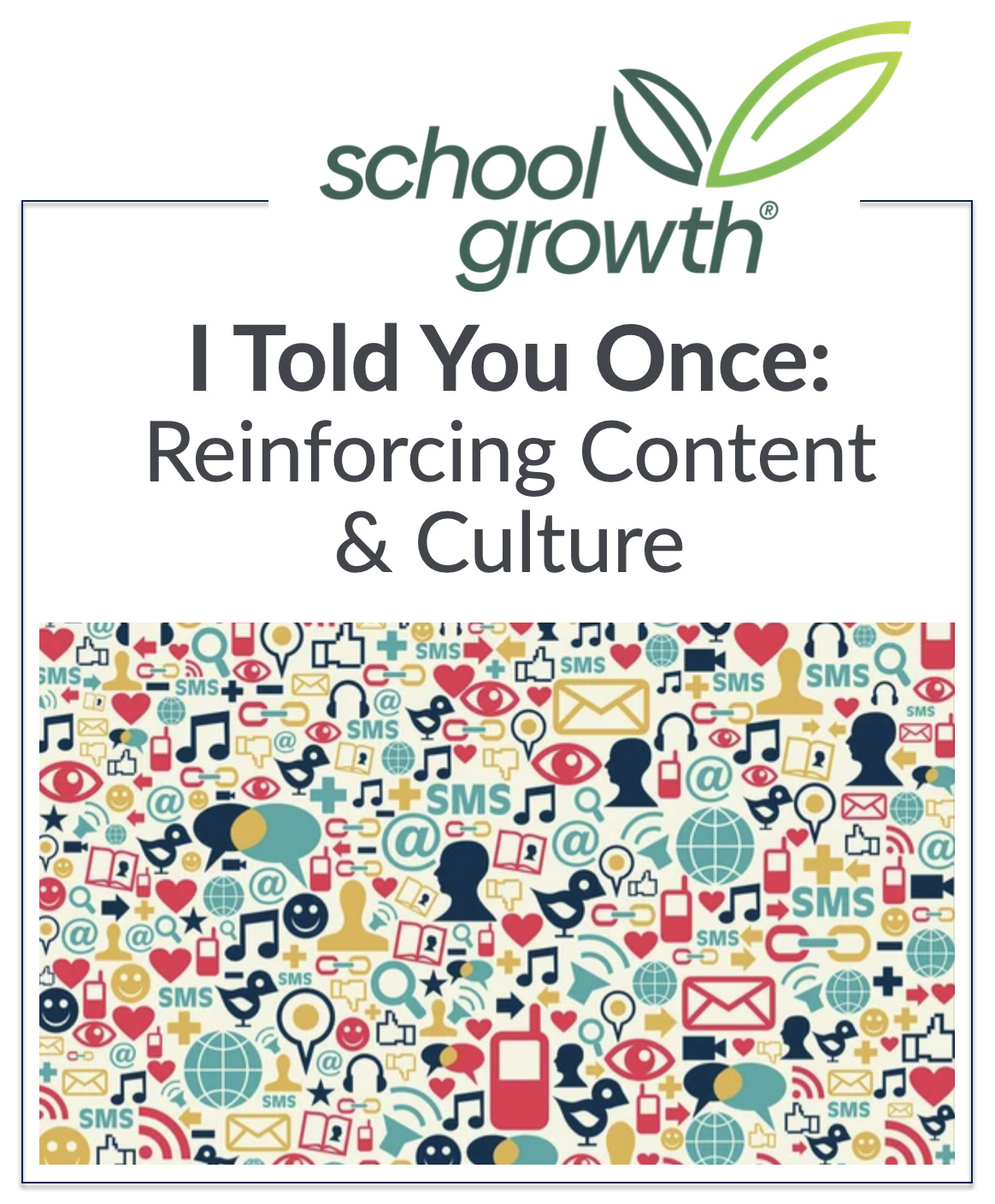
I Told You Once: Reinforcing Content and Culture
"I told you once!"
How often have we heard or used that exasperated expression?
Why do we have to repeat ourselves?
Because we're talking to human beings?
Because they're not paying attention?
Because that's part of effective communication?
Communication is fundamental to growing trust, understanding, and respect throughout the school community, yet these skills are often underestimated and underdeveloped. Highly effective educators are exceptionally adept at getting their messages through.
Half the world is composed of people
who have something to say and can’t,
and the other half who have nothing
to say and keep on saying it.
— Robert Frost
Feedback on highly effective educators reveals some interesting data.
They are never described as:
- Excessive in Talking
- Permissive in Accountability
- Resistive in Methods
Those who contribute the most to mission, culture, and goals are recognized for their consistency, persistence, and follow-through in communicating key messages. They are actually quite repetitive.
We're all much worse at remembering instructions or events than we might realize. German psychologist Hermann Ebbinghaus called this effect, The Forgetting Curve, and described how new knowledge fades rather quickly if not applied and connected. In other words, that downward trend can be broken by repeating information repeatedly.
Saying it once is not enough. Repeating messages using a variety of methods makes them more sticky, elevates learning, and embeds best practices.
Good communication is just as
stimulating as black coffee,
and just as hard to sleep after.
— Anne Morrow Lindbergh
If our goal for communication is just to get the word out, then we can produce the same old emails, bulletin board fodder, syllabi, evaluations, and other general stuff.
Check the box—Done ✔️
But if we desire to communicate expertly in a manner that grows trust and inspires the desired responses, then we must master a whole new level of skills. Communication doesn’t just happen—it involves listening, sensing, and talking so that we can adapt our methods to the way they perceive and process the world.
Communication is the lifeblood of educational culture, and it improves as we understand the different ways of expressing what we mean. In schools that are more culturally diverse and globally connected, educators will need to become even better at reading people and more expert in adjusting their communication styles and methods to the colleagues, students, and others with whom they interact.
Careless words stab like a sword,
but the words of wise people bring healing.
— Proverbs 12:18
The disciplines of communication can be mastered if we're willing to work at it.
That's why we take advantage of every opportunity to practice these habits and skills so that when those important occasions arise, we've honed our talents, unique style, and
educator mindset to effectively teach and guide other people in a masterful way.
We change the world by wisely using language, media, and an authentic testimony that lights the way. That inevitably requires repeating, reminding, and reinforcing.
Your influence touches way more lives than you'll ever know, my friend, so be relentlessly true to and disciplined with your messages.

.png?width=1000&height=199&name=SG-Logo3-Transparent-1000x199px%20(1).png)

.jpg?width=100&height=100&name=elementary%20student%20squeezing%20a%20stuffed%20animal%20while%20holding%20their%20breath%20(1).jpg)


